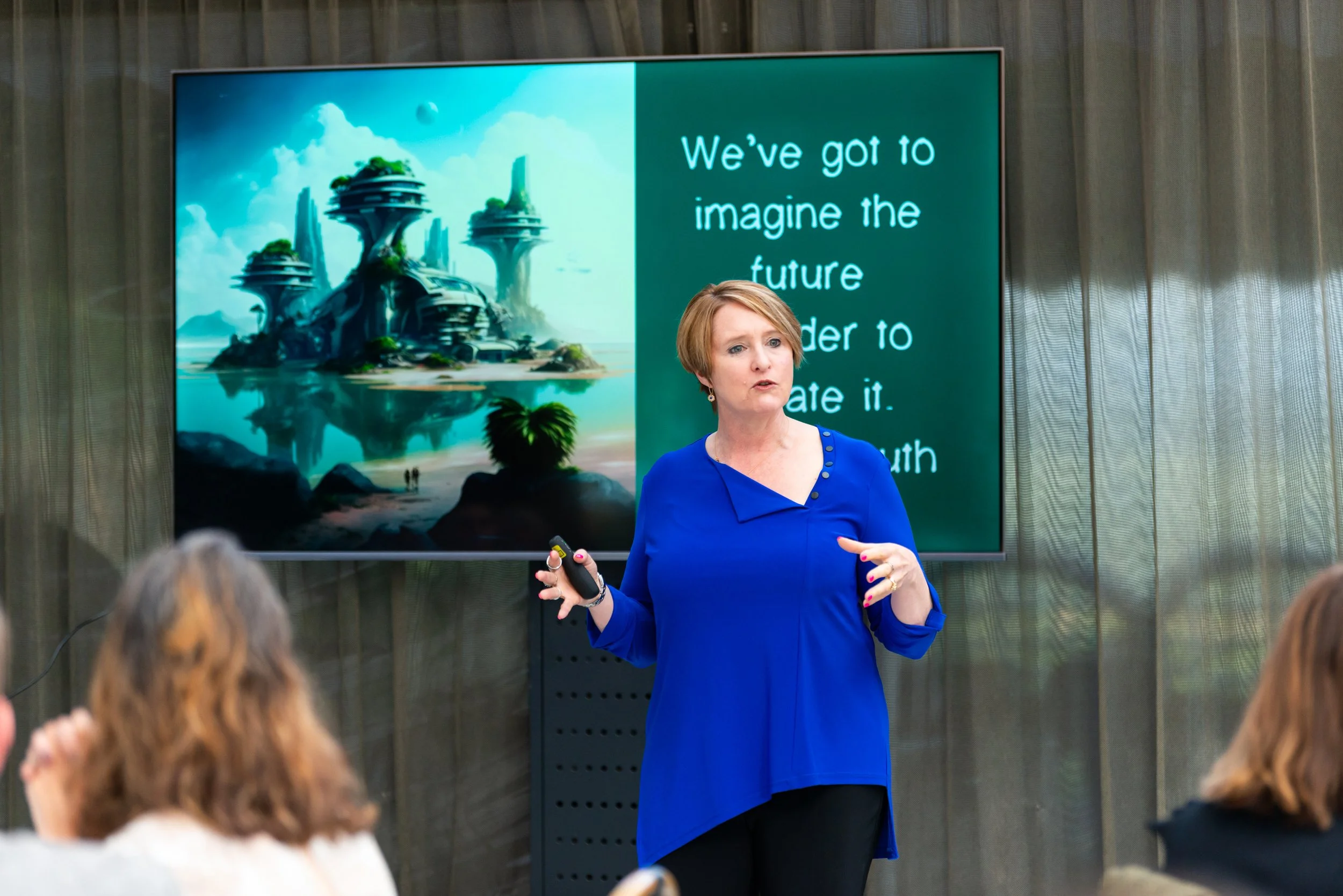At the UnConference we discussed the benefits of dogged persistence, of commitment to habits that make lifetime breakthroughs, not just short-term, once off transformations. The work of James Clear featured heavily.
Quitting strategically is a leadership strength
Daniel Kilov, one of our speakers spoke up and asked, “When do you know when to stop? When do you draw the line in the sand and give up, if it’s not working? When do you quit or grit?”
This is a marvellous question to wrestle with.
Popular self-help is rife with advice about never giving up on your dreams, to keep on keeping on. People are happy to quote the fact that Edison did not fail 10,000 times, but only found 10,000 ways that did not work in creating the light bulb.
This Michael Jordan quote is also trotted out often:
“I've missed more than 9000 shots in my career. I've lost almost 300 games. 26 times, I've been trusted to take the game winning shot and missed. I've failed over and over and over again in my life. And that is why I succeed.”
We love the stories of dogged persistence, the twenty year ‘overnight’ success. It gives us hope in what James Clear calls the long valley of disappointment. This is where we have been showing up, day after day, plugging away at our dream in small bite sized chunks. And yet results seem elusive.
In his book, The Dip - The extraordinary benefits of knowing when to quit (and when to stick) , Seth Godin calls the Valley of Disappointment the Dip. He suggests that what we need to quit are the things that get in the way of being our very best at what we do. He says, “Strategic quitting is a conscious decision you make based on the choices available to you.” Obstacles are there to hone our skills. We get better by leaning into the discomfort of becoming better. Don’t quit something where there is long-term potential just because of temporary short-term struggles.
Are there times when we really should give up?
I remember watching some reality TV show with dance talent auditions. One young man came on and did a full on, heartfelt dance. And it was bloody awful. Even someone like me with no experience in dance could tell it was terrible. It was clear the producers only included it because it was so ridiculous. The judges were frank and brutal in pointing this out.
The young man was shattered. The camera turned to his mother who confronted the judges, “How dare you trample on my son’s dreams!”
I could not help thinking that the young man would have been better served by his mother, or dance teachers, with some constructive, honest, and useful feedback about his abilities, rather than blowing well-intentioned praise up his proverbial.
A leadership mindset for weighing up risk
How to assess when to quit
There are five areas to consider to quit strategically:
Meaning. When times get tough, it’s time to drill down in to why this project or goal is important to you. Is it an ego thing? Is it a contribution to a higher cause? Is it bigger than your own personal ambition?
Cost. What is it costing you to persist? Is that worth it? What will it cost you to quit? Is that worth it?
Audience. Do you have an audience for your project / business / idea? Do they have a problem that needs solving? Do they want that problem solved? Are they looking for or at least open to a solution?
Skills. Do you have the skills to solve the problem? Do you have the skills to sell the solution? Do you have the skills to serve your audience well? If you’re unsure, do you have someone who can give you genuine and honest feedback about this? Can you develop the skills you need?
Resources. Do you have the time, money, energy, and support to get you through the Dip / Valley of Disappointment?
When have you quit strategically? Do you have an experience where you think you quit too soon? What have you learned from this experience?
***
Related Articles:
Excellence is A Daily Commitment: Interview with Olympian Dan Collins
***
About the author, Canberra leadership expert Zoë Routh:
Zoë Routh is one of Australia’s leading experts on people stuff - the stuff that gets in our way of producing results, and the stuff that lights us up. She works with the growers, makers, builders to make people stuff fun and practical.
Zoë is the author of four books: Composure - How centered leaders make the biggest impact, Moments - Leadership when it matters most, Loyalty - Stop unwanted staff turnover, boost engagement, and build lifelong advocates, and People Stuff - Beyond Personalities: An advanced handbook for leadership. People Stuff was awarded Book of the Year 2020 by the Smart WFM Australian Business Book Awards.
Zoë is also the producer of The Zoë Routh Leadership Podcast.

